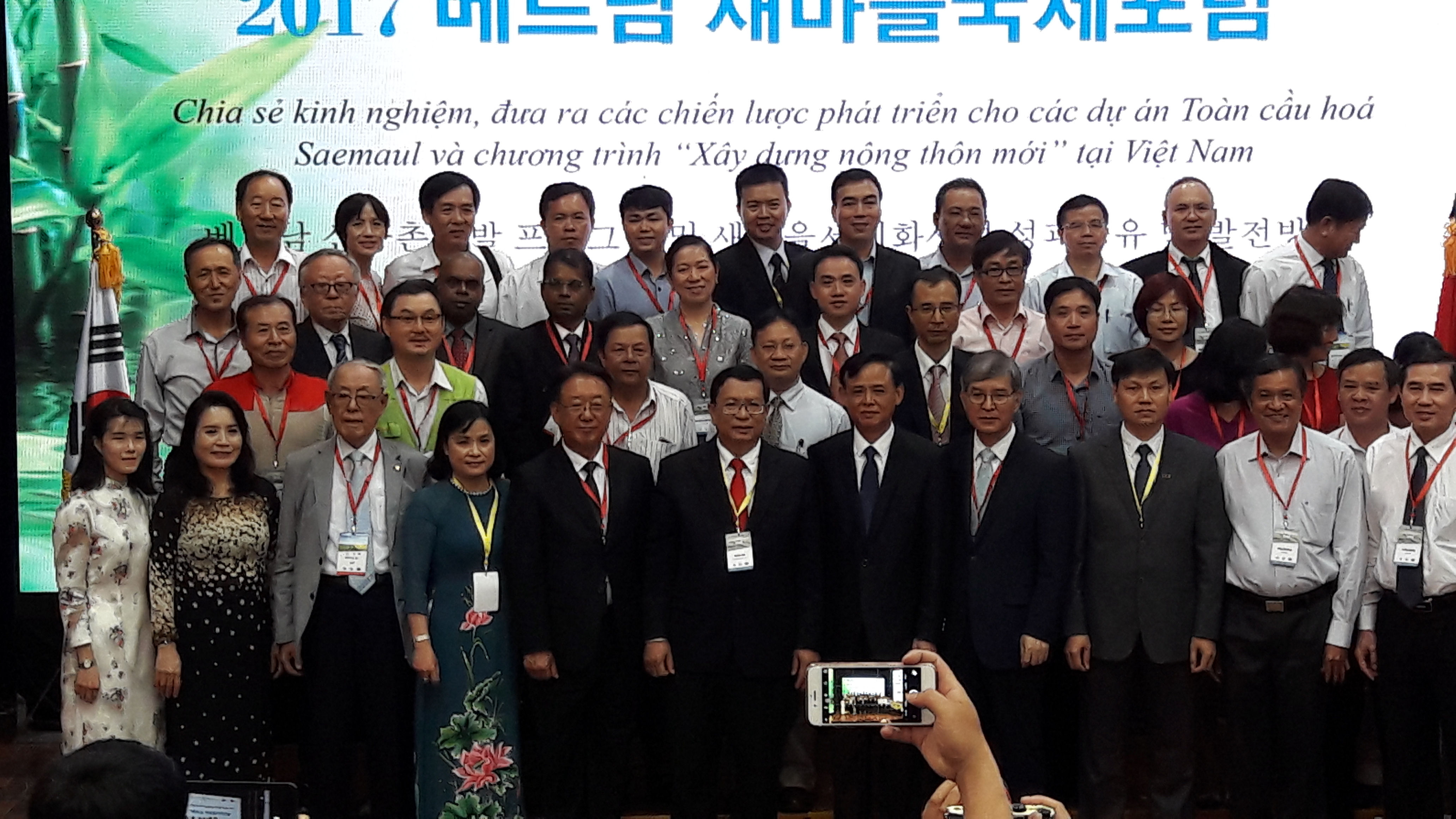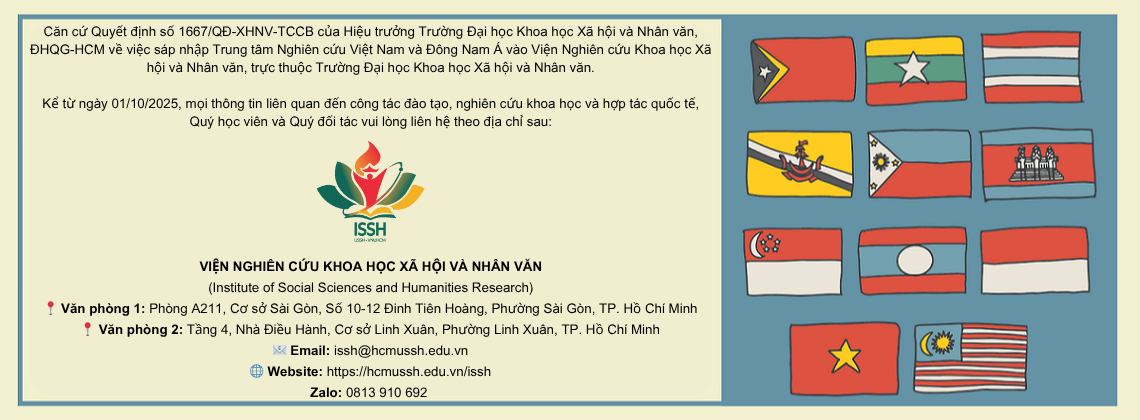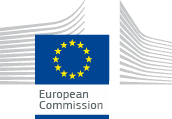2017 INTERNATIONAL CONFERENCE SAEMAUL VIETNAM
, 09/12/2017 17:12On the morning of November 23, 2017, Dr. Tran Dinh Lam attended the 2017 international conference Saemaul Vietnam entitled “Sharing experience and proposing development strategies for Saemaul Globalization projects” and the program “Building new countryside in Vietnam”, which took place at University of Social Sciences and Humanities (USSH), Vietnam National University – HCM City.
The conference was jointly organized by the Vietnam’s Ministry of Agriculture and Rural Development, the National Goal Program on New Countryside, Saemaul Globalization Foundation and HCMC USSH, Center for Rural Development – Saemaul Undong.
Attendees at the event included Mr. Hong Jun-pyo – Member of the Supreme People’s Council, Chairman of the Liberty Korea Party, Member of the National Assembly, Mr. Park Noh-wan – Consul General of North Korea in HCMC, Gyeongsangbuk province, Korea International Cooperation Agency (KOICA), cities and counties in Gyeongsangbuk province, Saemual Globalization Foundation, relating agencies, and leaders of volunteers at villages where the project is being implemented.
Vietnamese participants included Mr. Ha Cong Tuan, Deputy Minister of Agriculture and Rural Development, Ministry of Labor - Invalids and Social Affairs, HCMC, Chairmen, Deputy Chairmen of Thai Nguyen, Bac Ninh, Hue, Ninh Thuan, Hau Giang provinces, 12 provinces in the Mekong Delta, and representatives of UNDP, FAO, Department of Social Assistance - Ministry of Labor - Invalids and Social Affairs. HCMC USSH’s representatives were Assoc.Prof.Dr. Vo Van Sen – President, Dr. Ngo Thi Phuong Lan – Vice President, Dr. Pham Tan Ha – Vice President, alongside lecturers and researchers from different faculties and centers.

At the conference, Korea shared its experience in socio-economic development, especially information about the Saemaul Undong Movement by Chairman of SGF – Director of Institute for Autonomy Development Research, Prof.Dr. Kim An -Je. He talked about South Korea’s situation and the driving force behind its changes, given a flagging economy, people suffering from hunger and depression, and a lot of social problems such as alcoholism, gambling, frauds, etc. At that time, Korean people’s average income was only $50 per capita. In the 1950 – 1953 period, civil war broke out on the Korean Peninsula, causing massive damage to South Korea. The Korean government started focusing on economic development plans for each 5-year period, with emphasis on heavy, chemical and export industries. However, such a shift opened a gap between manufacturing industry and agriculture as well as imbalance in daily life between rural areas and urban regions when people flock to big cities, causing the shortage of labor in the countryside.
After suffering serious impacts because the planning of policies deviated from what had been expected earlier, during the following 5-year plans, the South Korean government raised its awareness and introduced more effective strategies, focusing on core issues such as environmental protection, hunger prevention, corruption eradication, self-responsibility for consequences, and building a self-reliant economy. The government continuously spread the spirit of hard work, efficiency, healthy lifestyle and mutual cooperation. The country’s leaders themselves always follow these guidelines to become good examples for its citizens. Thanks to appropriate and effective policies, South Korea’s economy has made considerable progress. In 1970, its per capita income was $275. This figure increased up to $1,000 in 1977 and $5,000 in 1989. Now it has reached $30,000. South Korea has also succeeded in eliminating the gap with other countries in the region as well as the gap between the countryside and cities.
Korea’s success results from its leaders’ exemplary behavior and the government’s efforts to make reforms. The government encourages its citizens to get rid of their ingrained thought of poverty. The government’s integrity, honesty, transparency, and commitment also help to win the public’s trust, making them unanimous in following its policies. Moreover, building fair competition and widely replicating the model of competing between villages have helped Korea increase its competitive capacity, contribute to economic growth and attract more investors.
From its achievements, the Korean government regards trust as the most valuable lesson. Cooperation among citizens, the government’s good manners and the public’s trust in the government all help to create enormous strength. Thanks to the Saemaul Conference, Vietnam had a chance to learn useful and practical experience from South Korea in socio-economic development, which will help the country avoid mistakes in policy making and aim towards the Saemaul spirit in order to increase its importance in Southeast Asia.














